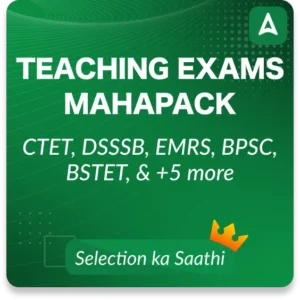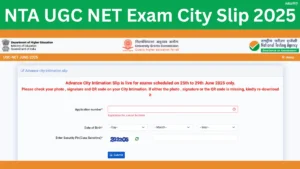Table of Contents
The Rajasthan Eligibility Examination for Teachers (REET) 2025, conducted by the Board of Secondary Education, Rajasthan (BSER), is an important exam for aspiring teachers in Rajasthan Government Schools. Among its various subjects, Social Science is significant in REET Level 2, a main subject designed for candidates applying to teach Classes 6 to 8. To clear the Social Science section, candidates must focus on high-weightage topics that are frequently asked in previous years’ exams. This article outlines the most important and important Social Science topics for REET 2025, along with strategic preparation tips to help candidates perform well in the exam.
Significance of Social Science Language in REET 2025
Social Science, being a main subject for the candidates preparing for the Level 2 exam asks candidates to focus meticulously and prepare in a well-structured approach to the main topics, which significantly improve accuracy, enhance conceptual understanding, and maximize scores. As Social Science is the subject that carries a total of 60 marks from 150 marks, holding a huge 40% stake in the total of the exam, it becomes a necessity for the candidates to follow the 80/20 rule that says focus on those 20% topics that are asked in the 80% of the subject. So, let’s see some points that advocate the significance of Social Science in the Level 2 exam:
- Core Subject for Paper 2: Social Science is a dedicated subject in REET Paper 2, specifically for candidates applying for Social Studies Teacher positions.
- Significant Weightage: This section carries a weightage of 60 marks in Paper 2, making it one of the highest-scoring subjects.
- Conceptual & Analytical Focus: The exam tests a candidate’s factual knowledge, analytical skills, and teaching methodologies.
- Scoring Advantage: With proper preparation and topic prioritization, candidates can maximize their marks in this section.
- Pedagogical Relevance: The exam also evaluates teaching strategies related to Social Science, ensuring that future educators can deliver the subject effectively.
Important Social Science Topics for REET
To score well in the Social Science section of REET Paper 2, candidates must focus on important and frequently asked topics. These important Social Science topics for REET are selected based on their relevance, weightage, and past exam trends. A well-structured approach to these areas can help in understanding concepts better and answering questions with accuracy. Candidates should emphasize Indian and Rajasthan History, Constitutional Framework, Physical and Human Geography, and Economic Development, as these topics appear repeatedly in the REET 2025 Exam.
| History | |
| Topic | Subtopics |
| Ancient History | Pre-Historic Ages, Indus Valley Civilization, Vedic Age, Buddhism, Jainism, Other Sects, Mahajanpadas, Mauryan Empire, Post Mauryan Period, Sangam Age (Chola Empire), Post Gupta Empire, Gupta Empire, Harsha & Post-Harsha Period, Art & Architecture, Art and Culture |
| Medieval History | Early Medieval Period, Turkish Invasion in India, West, North & East India Kingdoms, Delhi Sultanate (Slave Dynasty, Khilji Dynasty, Tughlaq Dynasty, Sayyid Dynasty, Lodi Dynasty, Administration in Sultanate Period), Bhakti Movements (Bhakti Movement, Sufi Movement, Sikhism), Southern Kingdoms (Vijayanagar Kingdom, Bahamani Kingdom, Other Southern Powers), Mughal Period (Babur, Humayun, Sher Shah Suri, Akbar, Jahangir, Shah Jahan, Aurangzeb), Mughal Administration, Later Mughals, Mughal Architecture, Rise of Regional Powers (Marathas, Sikhs, Rajputs, Other Regional Powers), Advent of Europeans |
| Modern History | Anglo-French War, Conquest of Bengal, Anglo-Mysore Wars, Anglo-Maratha Wars, Annexation of Awadh, Conquest of Sind, Anglo Sikh Wars, Governor Generals & their Policies, Charter Acts, Economic Exploitation under Company Rule, India under East India Company Rule, Modern Indian History |
| Indian National Movement | Revolt Of 1857, Acts and Constitutional Development, Viceroys and their Policies, Rise of Nationalism (INC and INC Sessions, Early Moderates, Rise of Extremists, Partition of Bengal, Swadeshi Movement, First World War, Home Rule League, All India Muslim League, Lucknow Pact 1916, Revolutionary Movements), Gandhi and his Early Movements, Mainstream Phase (Rowlatt Act, Non Cooperation Movement & Khilafat, The Swarajists, Simon Commission, Nehru Report, Poorna Swaraj, Civil Disobedience Movement, Round Table Conferences, Communal Award & Poona Pact, Demand for Pakistan, World War 2 & August Offer, Individual Satyagrahas, Cripps Mission, Quit India Movement), Road to Independence (Bose and INA, Raj ji formula, Wavell Plan, RIN Mutiny, Cabinet Mission, Attlee’s Declaration, Mountbatten Plan), Non-Conventional Movements (Women Movements, Peasant Movements, Tribal Movements, Worker Class-Labour Movements, Role of The Left, Popular Struggles in the Princely States, Capitalists And National Movements, Zamindari Movements, Social Reform Movements), Two-Nation Theory and its Proponents |
| Post Independence History | Challenges After Independence, Integration of Princely States, Tribal Integration, Linguistic Reorganization of States |
| World History | Industrial Revolution, Capitalism, Socialism, Communism, Marxism, Fascism, American Revolution, French Revolution, Unification of Italy, Unification of Germany, Russian Revolution, World War 1, World War 2, Cold War, Disintegration of USSR, Imperialism & Colonialism, Decolonization |
| Geography | |
| Topic | Subtopics |
| Geomorphology | Universe, Origin of Earth, Earth’s Characteristics, Geological Time Scale, Longitudes and Latitudes, Earth’s Interior, Continental Drift Theory, Sea Floor spreading, Plate Tectonics, Earthquakes, Tsunamis, Volcanoes, Rocks, Earth Movements, Weathering, Mountains, Plateaus, Plains, Drainage and River Landforms, Glacial Landforms, Desert Landforms, Coastal Landforms, Karst Landforms, Lakes, Soils |
| Climatology | Structure, Composition of Atmosphere, Heat & Temperature, Pressure, Winds, Evaporation Condensation and Precipitation, Clouds, Airmass and Fronts, Cyclones, Weather and Climate of World, Schemes of Classification of Climate |
| Oceanography | Ocean Relief, Tides and Waves, Currents, Salinity, Temperature, Ocean Resources, Coral Reefs |
| World Economic & Human Geography | Mineral Resources, Energy Resources, Land Resources, Water Resources, Agriculture, Industries, Transport, Demography, Tribes |
| Indian Economic & Human Geography | Mineral Resources, Energy Resources, Land Resources, Water Resources, Agriculture, Industries, Transport, Demography, Tribes |
| Indian Physical Geography | India as a Geographical Unit, Rocks, Mountains and Passes, Central Plateau, Plains, Peninsula, Ghats, Coasts & Coastal Plains, Islands, Rivers, Climate, Soil, Vegetation, Lakes, Deserts |
| Maps | – |
| World Physical Geography | Boundaries, Rocks, Mountains and Passes, Plateaus, Plains, Peninsula, Coasts, Islands, Rivers and Lakes, Climate, Soil, Vegetation, Seas & Oceans, Grasslands, Deserts, Straits and Isthmus |
| Globe | – |
| Miscellaneous | – |
| Economics | |
| Topic | Subtopics |
| Economic Reforms | LPG Reforms, Public Sector Reforms |
| Banking and Financial Sector | Basics, Money Market, Capital Market, Money, Banking Reforms, Financial Institutions, Financial Regulators, Financial Inclusion, Monetary Policy, Inflation, Commodities Market, Forex Market |
| Agriculture | Green Revolution, Land reforms, Agricultural Production & Productivity, Primary Inputs (Seeds, Irrigation, Fertilizers, Pesticides), Agricultural Marketing, Agricultural Prices, Food Security, Sustainable Agriculture & Organic Farming, Animal Husbandry |
| Industries | Major Industries, Cottage Industries, Industrial Policy, Public Sector, Industrial Sickness, Unorganized Sector |
| Services | IT, Tourism, Ecommerce, Startups & Entrepreneurship |
| Government Schemes | |
| GA | Art & Culture, Famous People, days and events, Famous Places, Books and authors, Misc |
| Social Studies Pedagogy | |
| Topic | Subtopics |
| Nature of Social Studies | Nature of Social Science/Studies, Concept of Social Science/Studies |
| Developing Critical Thinking | Methods of Developing Critical Thinking |
| Relation of Social Studies | |
| Teaching Aids | |
| Curriculum-Textbook & Lesson Plan | Definition of Curriculum, Characteristics of Curriculum, Lesson Plan of Social Studies |
| Class Room Processes | Class Room Processes, Activities and Discourse |
| Enquiry/Empirical Evidence | Enquiry about historical events |
| Approaches of Social Studies Curriculum | Project Method, Approaches of Social Studies, Types of Teaching, Teaching Rules, Teaching Method, Problem in Teaching |
| Sources | Primary Sources, Secondary Sources |
| Project Work | Group Learning, Individual Learning |
| Evaluation & Assessment | Definition of Evaluation, Type of Evaluation, Objectives of Evaluation, Characteristics of Evaluation, Types of Assessment, Methods & Techniques of Evaluation |
| Remedial Teaching in Social Studies | Diagnosis and Evaluation |
| Theories on Social Studies | Vygotsky’s Theory, Bloom Taxonomy, Albert Bandura, Erikson’s Theory |
| Misc | |
Preparation Tips for REET Level 2 Social Studies Section
Scoring well in the REET Level 2 Social Studies section requires a clear understanding of History, Geography, Polity, and Economics. With a structured approach, candidates can master key topics, improve retention, and enhance accuracy. Here the tips you can follow to ace social studies in REET level 2 exam:
- Know the Syllabus & Exam Pattern – Focus on History, Geography, Polity, and Economics. Prioritize high-weightage topics.
- Make Concise Notes – Use timelines for History, flowcharts for Polity, and maps for Geography.
- Focus on Rajasthan GK – Study important events, rulers, folk culture, and geography of Rajasthan.
- Understand Key Concepts – Revise Fundamental Rights, Panchayati Raj, Indian Economy, and key constitutional amendments.
- Practice Previous Papers & Mocks – Solve past questions, take mock tests, and analyze weak areas.
- Use Mnemonics & Tricks – Memorize dates, acts, and facts with acronyms and visual aids.
- Manage Time Wisely – Allocate study hours, set daily goals, and revise regularly.
| REET 2025 Important Links | |
| REET 2025 Notification | REET Answer Key 2025 |
| REET Result 2025 | REET Syllabus |
| REET Previous Year Question Paper | REET Selection Process |
| REET Validity | REET Cut Off Marks |




 REET Mains परीक्षा के ...
REET Mains परीक्षा के ...
 UGC NET Exam City Intimation Slip 2025 O...
UGC NET Exam City Intimation Slip 2025 O...
 How can I Prepare for UGC NET Exam onlin...
How can I Prepare for UGC NET Exam onlin...












